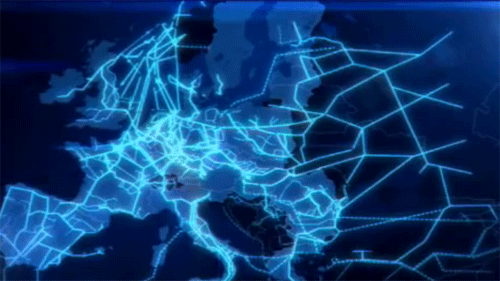
European Union’s Energy Security: The Impact of Tensions in External Relations with Russia on Central Europe
Graduate School of Public and International Affairs (GSPIA), University of Ottawa, Canada (2011-2013)
ABSTRACT
With energy having become a referent of security, the perceived threats to a state’s security have expanded to incorporate supply disruptions, weak infrastructure, absence of sufficient energy supplies, and overdependence on too few suppliers. All of the above are energy security concerns addressed by the European Commission, in light of the increasing demand for hydrocarbons to fuel the European Union’s economy. The EU is well aware of its overdependence on, especially, Russian natural gas and the need for increased supply security.
As a result, integral components of the EU's strategy towards supply security are diversification, transparency, and solidarity. Russia’s desire to retain and strengthen its advantageous geostrategic, monopolistic position in energy relations with the EU drives Russia’s interests and behaviour vis-à-vis its most important energy importer. The different meanings attached to energy security and approaches to its achievement in the EU and Russia create a complex and problematic relationship between these two interdependent units.
Despite ongoing efforts, mainly from the European side, it is difficult to sustain cooperation guided by transparency and common market rules as the EU envisions. It wants to maintain energy relations with Russia based on cooperation and interdependence. The European Commission is implementing policies to aid in the process - namely an active search for alternative routes and suppliers, endorsement of solidarity among the member states, and liberalization of the energy market. However, Russia’s energy policy is in direct opposition to Europe’s liberalization and diversification efforts. Ongoing tensions result from the incompatibility of norms and rules that guide their respective energy policies as well as differing material interests of individual European member states which in turn makes the achievement of supply security in heavily dependent countries in Central Europe a difficult task.
Canada’s role as a middle power in the United Nations: Establisher, ‘Universalist’, Reformer, and Peacekeeper
Pages of Reflection: A Journal of Essays by Senate Pages
Edited by The Honourable Sharon Carstairs, P.C., Senator
Volume 3, Fall 2010
ABSTRACT
Canada was one of the original 51 nations which formed the United Nations in 1945. In this essay, Maria Habanikova explores the evolution of Canada‘s role as a middle power in the United Nations. From establisher, to universalist, to reformer, to peacekeeper, the author examines Canada‘s contributions on the world stage as a member of the United Nations, proving that even middle powers can make a contribution.

